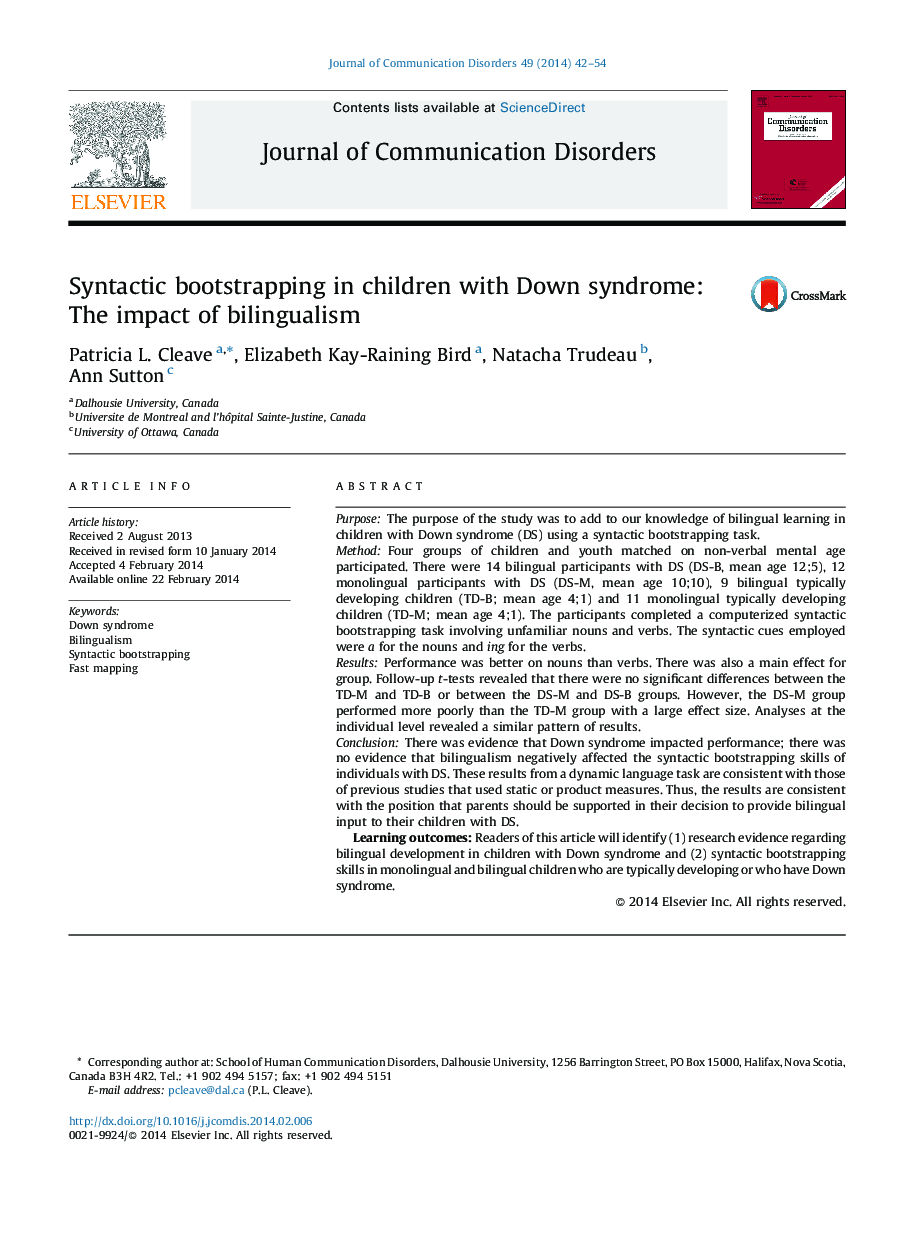| کد مقاله | کد نشریه | سال انتشار | مقاله انگلیسی | نسخه تمام متن |
|---|---|---|---|---|
| 910813 | 1473107 | 2014 | 13 صفحه PDF | دانلود رایگان |

• We explored bilingual skills in Down syndrome using a syntactic bootstrapping task.
• There was no difference between monolingual and bilingual individuals.
• Bilingualism did not negatively affect the individual's performance.
• Parents of children with DS in a bilingual environment should be supported in their decision to provide bilingual input to their children.
PurposeThe purpose of the study was to add to our knowledge of bilingual learning in children with Down syndrome (DS) using a syntactic bootstrapping task.MethodFour groups of children and youth matched on non-verbal mental age participated. There were 14 bilingual participants with DS (DS-B, mean age 12;5), 12 monolingual participants with DS (DS-M, mean age 10;10), 9 bilingual typically developing children (TD-B; mean age 4;1) and 11 monolingual typically developing children (TD-M; mean age 4;1). The participants completed a computerized syntactic bootstrapping task involving unfamiliar nouns and verbs. The syntactic cues employed were a for the nouns and ing for the verbs.ResultsPerformance was better on nouns than verbs. There was also a main effect for group. Follow-up t-tests revealed that there were no significant differences between the TD-M and TD-B or between the DS-M and DS-B groups. However, the DS-M group performed more poorly than the TD-M group with a large effect size. Analyses at the individual level revealed a similar pattern of results.ConclusionThere was evidence that Down syndrome impacted performance; there was no evidence that bilingualism negatively affected the syntactic bootstrapping skills of individuals with DS. These results from a dynamic language task are consistent with those of previous studies that used static or product measures. Thus, the results are consistent with the position that parents should be supported in their decision to provide bilingual input to their children with DS.Learning outcomes: Readers of this article will identify (1) research evidence regarding bilingual development in children with Down syndrome and (2) syntactic bootstrapping skills in monolingual and bilingual children who are typically developing or who have Down syndrome.
Journal: Journal of Communication Disorders - Volume 49, May–June 2014, Pages 42–54